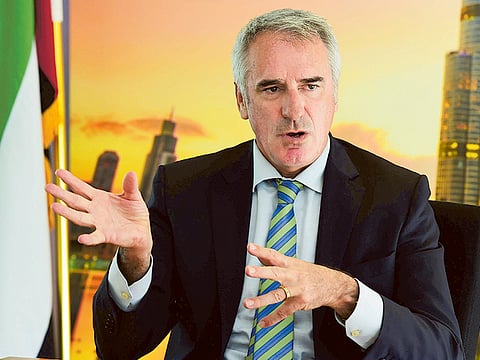Australia looks to Mideast health sector
Australia is focusing annual Mena trade campaign on health and medical sectors

Dubai: Australia’s annual Middle East and North Africa (Mena) trade campaign launches next week amid a period of sustained low oil prices that have sent shock waves through regional economies, raising questions over how past spending habits can be maintained.
A number of Gulf States, including Australia’s 18th largest trading partner and 10th biggest foreign investor the United Arab Emirates, have already announced steps to curb domestic expenditure through subsidy removals.
But the fast growing economies of the Gulf, and wider Mena region, are still very much reliant on foreign expertise to sustain growth.
This year, as part of its annual Australia Unlimted Mena campaign, Australia will target the Middle East’s developing health and medical sector, bringing over more than 60 companies to the UAE, Qatar and Saudi Arabia next week. Australian Minister for Tourism and International Education Richard Colbeck will lead the delegation.
The campaign hopes the focus will build on Australia’s traditional exports and expertise to the region of food, engineering and education.
“Australia has always been innovative and has a very good capability in health and medical,” Australian Senior Trade Commissioner Mena and Consul General to the UAE Gerard Seeber told Gulf News on Tuesday ahead of start the campaign and delegation visit next Sunday.
Dubai alone has ambitious plans to be the region’s premiere medical hub by the end of the decade, catering to medical tourists from the Middle East, Africa, Central Asia and South Asia. Australia hopes to cash in on this.
“Health and medical right around the Gulf is a sector that grows faster than GDP [gross domestic product]. You have population growth, you have raising standards that populations expect,” Seeber said.
So far, low oil prices are not affecting trade volumes, Seeber said, while a weakened Australian dollar that has fallen around 30 per cent against the United States dollar in recent years is making Australian exports more attractive to foreign buyers.
Seeber said exports to the UAE, its major trading partner in the Middle East, grew by over 10 per cent in the 12 months to June 30, 2015, when Australia’s financial year ends. He also said the UAE’s appetite to invest in Australia has not been dampened.
In November, the Abu Dhabi Investment Authority and Kuwait Investment Authority were part of a winning $7.5 billion consortium bid to buy TransGrid, the state electricity business in the Australian state New South Wales.
This year’s campaign will also see a delegation head to Egypt for the first time in several years following a period of strained relations over the arrest and detention of Australian and Al Jazeera journalist Peter Greste in 2013, who has since been released.
Mark Morley, Australia’s Senior Trade Commissioner at the trade commission in Saudi Arabia, will lead a delegation of 25 companies to Egypt the week after Minister Colbeck visits the Gulf States, Seeber said.
The delegation will focus on food exports and also investment by Egyptian corporations in Australia.
Like many others around the world, Australia is also closely watching Iran, whose economy is expected to open up sometime this year following last years deal to lift international sanctions under the nuclear accord reached in July 2015. Australia has already taken steps to re-engage with Iran with Foreign Minister Julie Bishop visiting Tehran earlier in April.
Seeber said once Iran opens up, the commission will look at opportunities for Australian oil and gas and mining companies to enter the country. Iran, a mineral and resource rich country, has been left undeveloped after years of sanctions. Seeber also said there is opportunity for Australian mining companies in Morocco and Saudi Arabia.
On Australia’s bid to sign a free-trade agreement with the Gulf Cooperation Council (GCC), which has stagnated since 2009, Seeber said, “it’s really very much on our agenda.”
“We’re just waiting for feedback [from the GCC],” he said.



